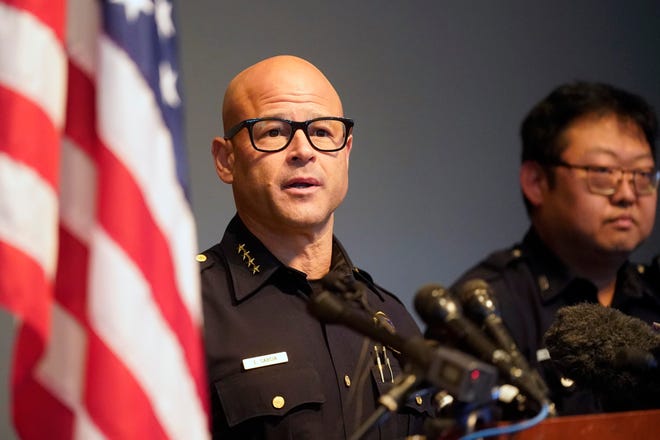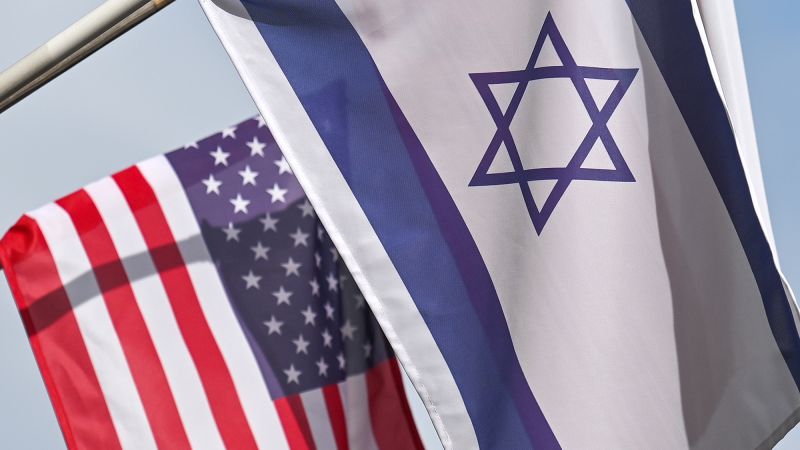Four in five Asian People do not feel they genuinely belong in the United States, though extra than 50 percent do not really feel safe and sound in community spots, a countrywide study located.
These sentiments are stirred by discrimination, a continuing increase in anti-Asian loathe crimes, lingering stereotypes and a deficiency of illustration in notable places, respondents claimed, with many reporting they felt unsafe or did not actually belong in spots ranging from their colleges and workplaces to their own neighborhoods.
“To live in a country exactly where you really do not come to feel like you belong and really don’t feel safe and sound is actually about,” stated Norman Chen, CEO of The Asian American Foundation, the Washington, D.C.-dependent business that commissioned the survey, taken earlier this year.
Recent activities add to strain
The foundation’s STAATUS Index report, its 3rd once-a-year study examining American attitudes about Asian People and Pacific Islanders, gathered responses from 5,235 U.S. citizens aged 16 and more mature.
“Over the previous various several years, there have definitely been a great deal of entire world gatherings contributing to stressors for the Asian American and Pacific Islander neighborhood,” stated Janie Jun, director of strategic initiatives for the blended treatment software at Lyra Wellbeing, primarily based in Burlingame, California. “Disparities throughout all minority groups has come to be apparent, and cultural and systemic obstacles are coming extra to light. What’s diverse is that the AAPI community is currently being much more vocal about it.”

The study found 78% of Asian American respondents felt unaccepted or that they did not entirely belong in U.S. society. Far more than 75% of Black and Latino respondents felt the identical way, in comparison to 43% of white respondents. Such thoughts were being a lot more acute amongst younger and female Asian Us residents.
About 3 in five cited discrimination as the major motive for not feeling they belonged, although 43% cited a absence of illustration of people like them selves in positions of power.
‘Long-lasting challenges that need to be addressed’
The study also found 52% of Asian Individuals feel unsafe for the reason that of their race or ethnicity, just shy of the part of Blacks (53%) who felt the identical but extra than the 47% of Latino respondents and 28% of whites who responded equally.
Asian Americans felt the very least protected on community transportation (29%), followed by their possess neighborhood (19%), at school (19%) and their place of work (17%).
Quit AAPI Despise, a San Francisco-centered team formed in the early levels of the COVID-19 pandemic to combat and acquire info about anti-Asian loathe, tallied much more than 11,000 studies of such incidents among March 2020 and March 2022.
“The absence of a experience of safety and belonging is not just something experienced in the course of COVID and the former (presidential) administration,” Chen stated. “These are lengthy-lasting concerns that will need to be addressed.”

The foundation’s findings echo all those of a yearlong research carried out by New York’s Columbia College and Committee of 100, a nonprofit composed of well known Chinese People in america. The “State of Chinese Americans” countrywide study of just about 6,500 individuals located that whilst most Chinese People felt they ended up section of American culture, they also felt marginalized.
About 75% claimed they experienced seasoned racial discrimination in the previous 12 months, and far more than 50 % feared detest crimes or harassment. Approximately one particular in 10 stated they’d been bodily intimidated or assaulted, and 20% experienced expert a number of occasions of racial slurs or harassment in human being or on the net.
Dread, loneliness can effects mental well being
Sensation that one’s identity is unsupported or unencouraged can affect mental wellbeing, specially among the the younger, Chen claimed, noting that suicide is the major bring about of demise for Asian People in america aged 15 to 24. Chen himself recalled that as a youngster escalating up in Maryland, he was not notably vocal about his Asian American identification.
“Many men and women will inform you they are not specially proud to be Asian American,” he mentioned. “I just needed to be like most people else. To not definitely be in a position to celebrate who you are is actually agonizing, particularly expanding up.”
The lack of safe and sound, supportive spaces can guide to a lonely existence, Jun reported. At the exact time, barriers which includes language, a absence of culturally proficient providers and cultural stigmas close to trying to get mental overall health providers can stop lots of from obtaining wanted assistance.
“People really feel obligated to conceal their suffering due to the fact they don’t want to stress family and pals,” she claimed. “That can lead to a downward spiral of panic and isolation, which can be harmful to one’s quality of life.”

Chen cautioned that though lots of have been buoyed by the Academy Award achievement of 2022’s “Everything, In all places, All at Once,” this kind of effects can be fleeting. He noted that the positivity generated by the 2018 romantic comedy “Crazy Wealthy Asians,” with its non-stereotypical tale and all-Asian forged, was quashed by the COVID-19 pandemic and the hostility of the Trump administration.
“There was a nosedive in how individuals felt about the local community,” he mentioned. “Old stereotypes truly linger in people’s minds, and it will choose a total technology to transform that.”







